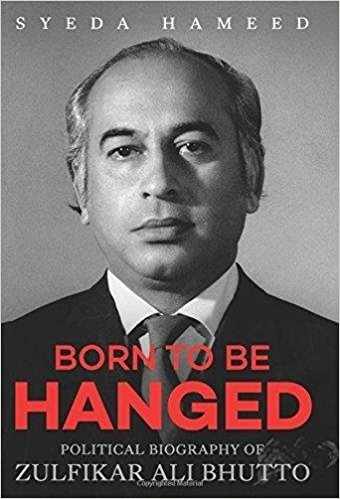The blood-strewn saga of the Bhutto clan exemplifies the tortuous political history of Pakistan. The books under review are political biographies of Zulfikar Ali Bhutto and his equally illustrious daughter, Benazir Bhutto, by an Indian and a Pakistani author respectively. Benazir became Pakistan’s as well as the Muslim world’s first female Prime Minister at the dramatically young age of 35 in 1988, within a decade after the brutal hanging of her father in 1979. In both cases, buoyant political journeys were cut short by tragic deaths during the time when military dictatorships held sway over Pakistan.
The authors bring attention to the varied hues of the complex subjects and the complicated times they lived in. Syeda Hameed though could be guilty of being uncritical in her reading especially of the foreign policy of Zulfikar Ali Bhutto (ZAB), the first democratically elected President of Pakistan.
Hameed bases most of her work, which took close to two decades to finish, on the insights and research material provided to her by ZAB’s long-time political associate and co-founder of the Pakistan’s Peoples Party (PPP), Mubashir Hasan. This is especially so when Hameed accuses Stanley Wolpert of bias in his famous work, Zulfi Bhutto of Pakistan (OUP, 1993), as he dedicated that book to Ardeshir Cowasjee, the Parsi columnist for the Dawn newspaper, who is described by Hasan as an ‘inveterate Bhutto hater’. Hasan himself is the author of a well-received book, The Mirage of Power (OUP, 2000), which deals primarily with the developments during 1971-1977, when he served as Bhutto’s Finance Minister, among other responsibilities. Hasan in fact acknowledges Syeda Hameed as one of his Indian friends who went through that manuscript prior to publication.

